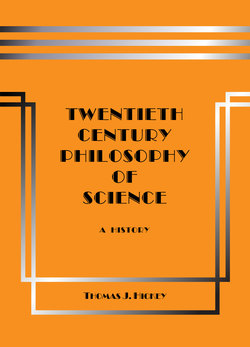Читать книгу Twentieth-Century Philosophy of Science: A History (Third Edition) - Thomas J. Hickey - Страница 51
На сайте Литреса книга снята с продажи.
3.20 Rejection of the Analytic-Synthetic Dichotomy
ОглавлениеAll universally quantified affirmations believed to be true are both analytic and empirical.
On the positivist view the truth of analytic sentences can be known a priori, i.e., by reflection on the meanings of the constituent descriptive terms, while synthetic sentences require empirical investigation to determine their truth status, such that their truth can only be known a posteriori. Thus to know the truth status of the analytic sentence “Every bachelor is unmarried”, it is unnecessary to take a survey of bachelors to determine whether or not any such men are currently married. However, determining the truth status of the sentence “Every raven is black” requires an empirical investigation of the raven bird population and then a generalizing inference.
On the alternative pragmatist view the semantics of all descriptive terms are contextually determined, such that all universally quantified affirmations believed to be true are analytic statements. But their truth status is not thereby known a priori, because they are also synthetic, i.e., empirical, firstly known a posteriori by experience. This dualism implies that when any universally quantified affirmation is believed to be empirically true, the sentence can then be used analytically, such that the meaning of its predicate offers a partial analysis of the meaning of its subject term. To express this analytic-empirical dualism Quine used the phrase “analytical hypotheses”.
Thus “Every raven is black” is as analytic as “Every bachelor is unmarried”, so long as both statements are believed to be true. The meaning of “bachelor” includes the idea of being unmarried and makes the phrase “unmarried bachelor” redundant. Similarly so long as one believes that all ravens are in fact black, then the meaning of “raven” includes the idea of being black and makes the phrase “black raven” redundant. In science an important reason for belief is empirical adequacy demonstrated by a nonfalsifying empirical test outcome.
